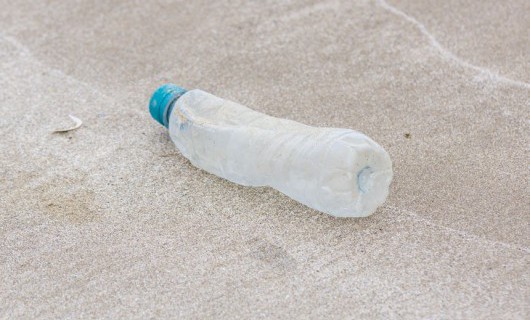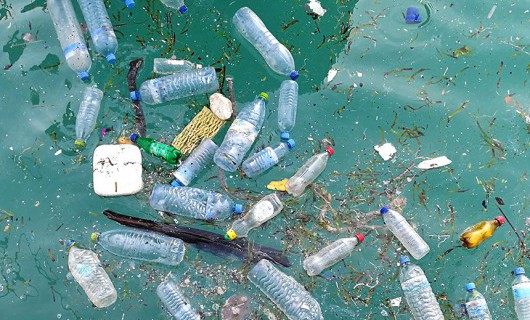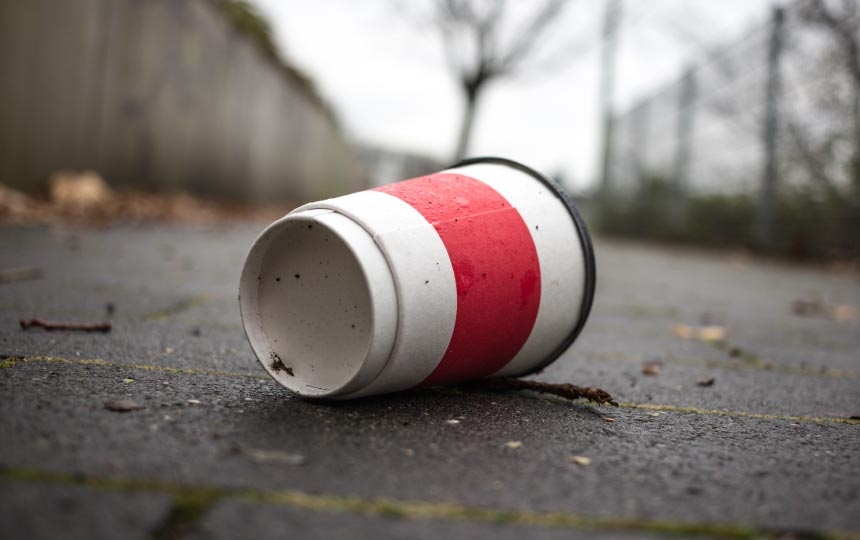
Are we rubbish at recycling?
Following the recent media coverage and wave of interest following Blue Planet 2 and the impact of waste and plastic in our sea, I've started to think; are we really rubbish at recycling?
More +Analysis
Only 9% of plastic is recycled, but you can help change that! We're working towards a world free of plastic waste, and you can too with our 10 simple steps to going plastic-free.
Why make something that you will only use for a few minutes, out of materials that last forever?
Everything you own or have ever owned will one day become waste. You drink your bottle of fizzy pop, throw the bottle into the recycling, put out the bins and then move on - you’ve done your part. But did you know that 91% of plastic is never recycled?
Follow these small steps and you can help create a plastic-free planet.
1. Use refillable water bottles and coffee cups
Why? A million plastic bottles are bought around the world every year, but less than half of these are recycled, and only 7% are turned into new bottles (The Guardian, 2018). Invest in a reusable water bottle and take back the tap!
In addition to this, the UK throws away 2.5 billion disposable coffee cups every year. 99.75% of these can’t be recycled (BBC, 2019). Take your own reusable coffee cup to your local coffee shop and you will likely get money off your drink. Helping to save the planet whilst saving money at the same time? win!
2. Pack a plastic free lunch
Why? It’s almost impossible to find lunch on the go that doesn’t come wrapped in wasteful plastic. Make sure you’ve got all the food, snacks and drinks you’ll need throughout the day and pack them in your reusable lunchbox!
3. Embrace the soap bar
Why? Liquid shower gels, shampoos and handwash are one of the biggest sources of household plastic waste. You can purchase all of these in bar form. These are free from plastic and often contain more natural ingredients that are better for you.
Tip: These are perfect for travelling – why invest in those tiny travel bottles when you don’t need to?
4. Shop naked
Why? Food-to-go is a growing market. Say no to groceries that use single-use plastic packaging, and instead focus on reusable containers such as glass and zip lock bags. You can also reuse your old packaging instead of throwing it away. Or, just get ‘naked’ fruit and vegetables – who needs that little carrier bag after all?
Tip: Prevent more waste by taking your own containers to the butchers or your local deli instead!
5. Bag it: Carry reusable bags or go for paper instead
Why? The change in law has dramatically reduced the impact of plastic bags on the environment. We have gone from 140 bags per person per year, to 19 (Gov, 2018). This is a huge step in the right direction, but there is still a long way to go.
Do you ever get to the supermarket and realise you forgot your bags? We’ve all been there. If you do need to buy one, make sure it’s paper.
Tip: Do your part and keep reusable bags in your car, near your front door, backpack and at work to ensure they are always on hand.
6. Say no to disposable straws and cutlery
Why? “No thank you, I don’t need a straw” - this is one of the easiest changes you can make. Many suppliers have switched to paper straws, but the majority of these are not recyclable either. If you like to use a straw, then invest in a reusable one. Try bamboo, glass, paper, steel or silicone – there are so many to choose from! You can also say no to disposable cutlery by carrying your own or investing in reusable bamboo cutlery.
Tip: When you order food, tell them or add a note that you don’t need cutlery with your order!
7. Avoid convenience foods
Why? Whether you are ordering takeout or buying a cheeky ready meal, these foods are the worst culprits for wasteful plastic. Plan your meals where possible and if you still want that takeaway then consider taking your own containers for the staff to pack it sustainably. Check the packaging on convenience foods in the shops and try and shop with sustainable brands.
Tip: Did you know that you can’t recycle greasy takeaway pizza boxes?
8. Keep away from plastic food wraps
Why? Clingfilm is ridiculously useful, so useful that more than 1.2 billion metres of clingfilm is used by households across Britain every year (Telegraph, 2011). It is increasingly difficult to recycle, being up at the top of the list alongside plastic straws and cutlery. Ditch the clingfilm and try reusable food wraps instead. Beeswax food wraps are just one of many sustainable options and are perfect for keeping your food fresh, as well as look fab in your kitchen!
9. Ditch disposable toiletries
Why? Amongst those wasteful bathroom plastics are a few other culprits. Its estimated that 3.6 billion plastic toothbrushes are used worldwide every year, with the average person going through 300 toothbrushes in their lifetime. Unfortunately, around 80% of these disposable toothbrushes end up in our oceans (Independent, 2018). Help to reduce these numbers by switching to biodegradable toothbrushes such as bamboo - you can get these on a subscription service!
It is also a good idea to avoid disposable razors. Not only are these poor quality, but they are also extremely wasteful. Switch to a more sustainable version which will last you longer and be better for your skin.
Why not try a plastic-free period with a menstrual cup? Or switch to reusable makeup remover pads? These will save you money and help the environment on a huge scale.
10. Cut down on polluting products
Why? The ban of microbeads marks a big step forward in the reduction of harmful products, but there is still more we can do to cut down. Being aware of what is in the products you buy will make you more conscious of your role in creating plastic waste.
It is estimated there are now 5.25 trillion pieces of plastic debris in the ocean, and a recent report estimated the quantity of plastic in the sea will treble by 2025 (Independent, 2019). By making just a few of these simple changes to your lifestyle, we can work together to towards a future free from plastic waste - just remember to always reduce, reuse and recycle!
Do you know more ways we can cut down on our plastic waste? Let us know how you recycle or what you have done to change your buying behaviour.

Following the recent media coverage and wave of interest following Blue Planet 2 and the impact of waste and plastic in our sea, I've started to think; are we really rubbish at recycling?
More +
91% of plastic isn't recycled, and everything you've ever owned will one day become waste. However, our fuss-free infographic lists 10 ways you can cut your plastic usage down.
More +
Over the past six years, recycling has evolved from a chore to a crucial behaviour. Despite our efforts in reusing, sustainable shopping, and adopting plant-based diets, media coverage suggests we're still falling short. Recycling rates in England have declined slightly, highlighting the need for improved waste management and stronger initiatives to reduce consumption and plastic pollution.
More +Enter your email address below to access the Academy and our Webinars